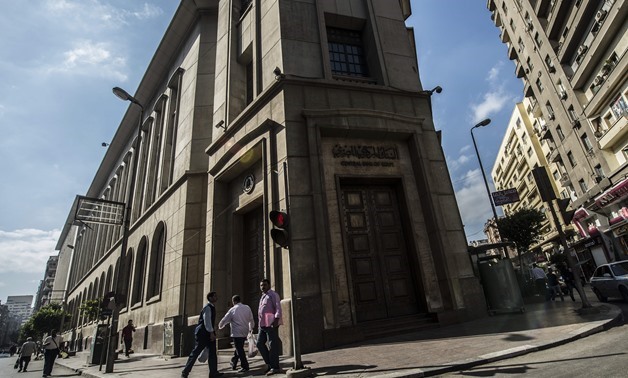
FILE - CBE
CAIRO – 13 October 2019: Registering a fourth consecutive monthly decline, Egypt’s inflation rates opened speculation once again in September about the expectations of the possible decision of the Central Bank of Egypt's Monetary Policy Committee (MPC) on interest rates at its November meeting.
The Central Agency for Public Mobilization and Statistics (CAPMAS) announced that annual inflation fell to 4.8 percent in September, compared to 7.5 percent in August and 15.4 percent in the same month of 2018, recording the lowest rates in about seven years.
The decline in inflation rates came because of year-on-year price stability, the strength of the pound and a more cautious spending behavior, in addition to a slight increase in food commodity prices by 0.3 percent (YoY), compared to 6.9 percent in August, which was supported by a monthly decline of about 1.8 percent.
The investment Bank, Beltone Financial, stressed that easing inflationary pressures along with the strong macroeconomic situation will allow the monetary easing cycle to continue in the current period. Beltone expected inflation to average 4.2 percent in the fourth quarter of 2019, so it raised its forecast for the next rate cut at the MPC meeting on November 14, 2019 to range from 50-100 basis points.
Beltone also predicted that interest rates will be cut by 300 basis points in 2020, justified by several factors: Foreign flows in fixed income instruments after the impact of interest rate cuts on revenues, the performance of net foreign assets at banks and the Central Bank of Egypt, and the exchange rate of the Egyptian pound against the dollar that ranges between LE 1 6-17.
Prime Investment Bank expected MPC to cut the overnight deposit rate by 100 basis points at the November meeting. Prime attributed the reasons for its expectation to the weak inflation rates that would still fully support further interest rate cuts at the next meeting.
Shuaa Capital confirmed that the CBE has a 'choice' for further easing in 2019. However, whether the CBE will take advantage of this option or not, is a multi-factor. It clarified that the CBE may prefer to keep interest rates if it prefers a cumulative reduction by 3.5 percent, and if calculated for a future rise within one year.
Moreover, head of research at Cairo-based investment bank EFG Hermes Mohamed Abu Basha told Bloomberg that Egypt’s central bank has embarked on rate cuts that could be second only to Turkey among emerging markets this year and next, according to BNP Paribas SA. “After reducing official borrowing costs by 250 basis points in the past two months, it is likely to deliver 100 basis points of easing at its next meeting in November.”
“Still, inflation may pick up after a few months and end the year between 8 percent and 9 percent,” according to Abu Basha.
“The real interest rate will be inflated in the next three months due to the base effect,” he said. “However, investors should pay attention to the December inflation figure to assess the sustainable real rate.”

Comments
Leave a Comment